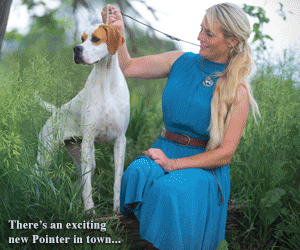Aiken County, SC: County Council Tables Animal Ordinance, Could Reconsider in July
 In response to input from residents regarding a proposed animal ordinance, the Aiken County Council voted to table the measure. It could be reconsidered at a July 2020 meeting. The American Kennel Club (AKC) thanks council members for their receptiveness to the concerns of residents. View AKC’s 6/15 legislative alert on this issue below:
In response to input from residents regarding a proposed animal ordinance, the Aiken County Council voted to table the measure. It could be reconsidered at a July 2020 meeting. The American Kennel Club (AKC) thanks council members for their receptiveness to the concerns of residents. View AKC’s 6/15 legislative alert on this issue below:
Aiken County, SC: URGENT, Public Hearing and Vote on Egregious, Overreaching Animal Ordinance TOMORROW, 6/16/20
A public hearing followed by a vote to enact a problematic new Aiken County animal ordinance is scheduled for Tuesday, June 16, 2020. Attendance at the public hearing will be limited. Please scroll down to view meeting and contact information.
Provisions of the Proposed Ordinance Include:
Does your dog bark or do your livestock animals cause undefined “offensive conditions”? Under a proposed ordinance, if convicted of harboring a nuisance (which may include barking) or dangerous animal, in addition to fines and possible imprisonment, you would be required to:
- Register the animal annually with the county and pay an annual fee.
- Submit “identification” to the county of every domestic animal housed at your residence, and update that list within 30 days each time there is any change.
- Allow the inspection of your primary residence, animal enclosures, and property no less than annually for as long as you reside in the county.
- Additional requirements would apply for an animal determined to be dangerous.
- After no sooner than five years, you may petition for a waiver of annual registration if you no longer own the animal and if you or any other person residing on the property has not been “investigated” for “possible” violations of the animal code for not less than five years.
The proposed ordinance also includes vague and overreaching animal care, abuse and neglect provisions. For example, it would be a violation subject to prosecution to:
- Fail to provide any animal with access to a shelter with four walls, a roof, and a floor. Per the definition of “shelter”, a dirt floor barn or run-in shed would not meet the requirements for “shelter.”
- Fail to provide an animal access to water at all times. There is no provision that would allow withholding water as instructed by a veterinarian. Nor would the ordinance allow for the provision of water at necessary intervals to maintain the animal’s health and hydration in accordance with accepted animal husbandry practices. A spilled water bucket would be an offense.
- Own, manage, obtain, confine, or care for one or more animals in an undefined “animal mill.”
- Engage in the undefined act of “collecting animals.”
- Fail to “acquire treatment” from a certified veterinarian for an injured or sick animal, regardless of the severity or nature of the illness or injury, and regardless if the illness or injury can be properly treated without veterinary intervention.
Additional problematic provisions include, but are not limited to:
- An animal could be confiscated and impounded for any suspected violation.
- A dog found running at large upon redemption must be sterilized or the owner would be assessed an additional fee (in addition to impoundment fees, boarding fees, and fines).
- A dog found running at large a second time in its lifetime would be declared a nuisance animal, subject to registration requirements, inspections of the owner’s residence, and the other requirements for a nuisance animal as noted above. Dogs that are off-leash when training for or participating in hunting, shows, and trials would be exceptions to the at-large designation.
- Each day or fraction of a day a violation continues would be a separate offense.
- The amounts of boarding fees, charges, and fines would be established by the County Council.
The American Kennel Club (AKC) advocates that the proper care and humane treatment of dogs includes providing an adequate and nutritious diet, clean water, safe and clean living and travel conditions, regular veterinary care, kind and responsive human companionship, and training in appropriate behavior. However, we are concerned that this proposed ordinance fails to recognize accepted and humane animal care practices, and seeks to establish egregious penalties and requirements for a violation of vague and overreaching offenses.
What You Can Do:
Animal owners in Aiken County are urged to immediately contact County Council members to politely express their concerns and attend the public hearing, if possible.
The public hearing and vote on the ordinance are scheduled for June 16, 2020 at 7:00 p.m., in the County Council Chambers, Third Floor, Aiken County Government Center, 1930 University Parkway, Aiken, SC 29801. Access is limited. Read the public hearing notice and information about limited access and restrictions.
County Council Contact Information:
Gary Bunker, Chairman
803.645.8388 (cell)
gbunker@aikencountysc.gov
Kathy Rawls, District 1
803.564.5435 (Home)
krawls@aikencountysc.gov
Camille Furgiuele, District 2
803.642.8752 (Home)
progoved@bellsouth.net
Danny Feagin, District 3
803.507.4556 (Cell)
dannyfeagin.district3@gmail.com
Chuck Smith, District 4
803.279.6065 (Work)
csmith9728@aol.com
Sandy Haskell, District 5
803.279.5769 (Home)
205.531.3830 (Cell)
shaskell@aikencountysc.gov
Phil Napier, District 6
803.663.7251
fournapiers@aol.com
L. Andrew Siders, District 7
803.645.1302 (Cell)
asiders@aikencountysc.gov
Willar H. Hightower, Jr., District 8
803.648.3020 (Home)
803.292.5313 (Cell)
willarh@bellsouth.net
For questions or additional information, please contact AKC Government Relations at 919-816-3720 or doglaw@akc.org.
Short URL: https://caninechronicle.com/?p=186185
Comments are closed












